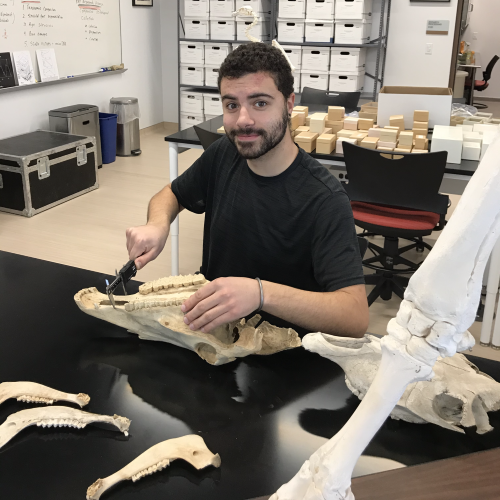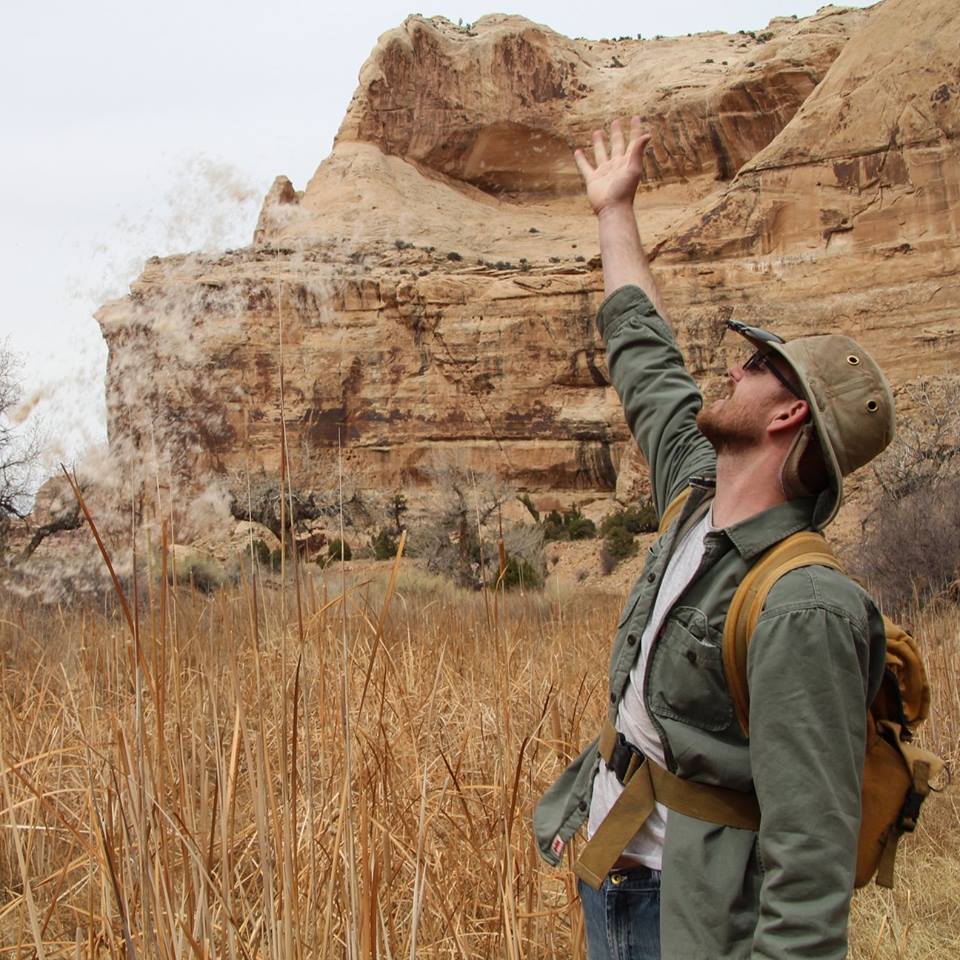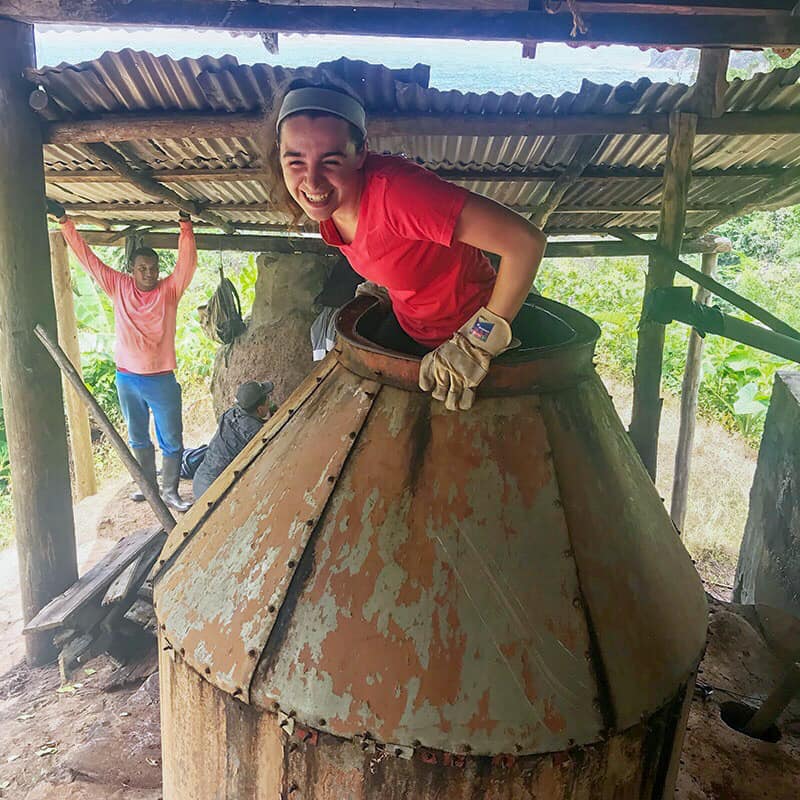Graduate Funding Opportunities
Department Funding
Anthropology Graduate Student Research Grant
-
Max $3500 per application
-
Grads can apply at any point in their studies
-
Grads can receive the grant a maximum of 2 times
-
Applications will be accepted and processed in Spring of each academic year. Applications are due no later than March 30th and students will be notified of the decision by April 15th.
-
Selections committee will be the Chair, DoGS and Programs Manager
-
Funds can be used for equipment, other supplies & materials, laboratory services & travel (breakdown of allowable expenses and guidance for applicants below)
-
If a student receives the award, they will be required to submit a relevant photo and write a brief summary of their research project to be used for dept. social media or alumni outreach efforts.
Application Guidance, Budget
In addition to the application text (1-page) that discusses the proposed work in relation to planned Master’s Project or Dissertation research, the Research Grant proposals should include an itemized budget for the project. In addition to the budget, applicants should include a brief budget justification narrative (1/2 page) to provide a rationale for specific expenses as well as the estimated amounts.
Graduate student Research Grant funds are intended to be used toward the costs of travel and research. Awards are contingent on availability of funds. The budget should be cost-effective and commensurate with the scope of the research project.
Appropriate Research Grant expenditures include the following:
Travel Expenses
List the proposed dates of travel and destinations, specifying the cost of travel for locations for which funds are being sought. Funds can be sought for travel to the destination and within the destination if this is related to the research. Travel expenses may include airfare, train fare, rental car and gas, or mileage for personal car. Requests for use of a personal car should be based on estimated gasoline cost or the University mileage rate. If requesting funds for a rental car, students may request the cost of rental and estimated gasoline cost.
Lodging expenses
List estimated actual cost for lodging expenses related to your research.
Assistantships & Fellowships
Students admitted to the Anthropology Graduate Program are typically offered multi-year funding packages to ensure students have sufficient funding throughout the course of their graduate studies. These funding packages typically offer a combination of RA and TA service. They include an annual stipend, full tuition waiver and subsidized health insurance plan. Funding decisions are made upon admission.
Research Assistantships (RA)
Faculty members with outside research grants often include funding for graduate research assistants. These positions can come with a tuition benefit, and the award amount is determined by the grant.
Teaching Assistantships (TA)
While many of our students are funded through research, numerous TA positions are available every semester. TA positions come with a full tuition benefit (called the Tuition Benefit Program, or TBP). In addition to this tuition benefit, teaching assistants recieve a living stipend. The award amounts of these stipends are variable, starting at $10,000 per semester.
Graduate Fellowships (GF)
The Robert Anderson Endowed Fellowship in Cultural Anthropology is offered through the Department of Anthropology on a regular basis. Students who submit a departmental financial aid application are automatically considered for this award.
Available to: A graduate student in Cultural Anthropology.
Application Materials: Letter of support from applicants committee chair, and synopsis of current research/dissertation
project.
Selection Criteria: Merit, awarded at the discretion of the selection committee.
Amount of Award: Typically $8,000-$10,000
Donor: John T. Anderson and the Anderson Family in memory of Robert Anderson.
Your 5-Step Guide to Applying for Fellowships/Scholarships:
1. Complete your FAFSA Application
There are a number of fellowships that are need-based. To be eligible for need-based fellowships, it is encouraged to submit a FAFSA application.
2. Complete the University’s General Scholarship Application
Before you can access any fellowship applications, you must complete this application.
3. Complete the College of Social and Behavioral Science Graduate Fellowship Applicationby April 1, 2021
When you complete this application you are applying for the Herbert W. Gustafson Endowed Graduate Fellowship, the Martin Harris Hiatt Endowed Fellowship, and the Earl & Elies Skidmore Endowed Graduate Fellowship.
4. Apply for the Robert Anderson Endowed Fellowship in Cultural Anthropology by April 1, 2021
5. Apply for Other Fellowship Opportunities:
David C. Williams Memorial Fellowship
Any other fellowships that you may be eligible for throughout the university
EXTERNAL FUNDING OPPORTUNITIES
Hiatt Scholarships
The College of Social and Behavioral Sciences offers four Hiatt Scholarships to "traditionally under-represented" graduate students. These are awarded to students who will "enhance the ethnic and cultural diversity of the graduate student body." Applications require transcripts plus a letter from the student describing past academic performance, need, community service activities, and future career plans. Students must be nominated for this award. If you think you might qualify and would like to be considered for this award, please contact the Administrative Officer.
College of Social and Behavioral Science Graduate Fellowships
CSBS helps to support at least one Anthropology graduate student each year. Students who submit a departmental financial aid application are automatically considered for this award.
College of Social and Behavioral Science Travel Support
CSBS wil provide two $500 travel awards to each graduate student during their time in the college. These awards must be research-related. Details of these awards can be found on the CSBS Graduate Travel Support page.
University Research Fellowships: The University offers several fellowships to support graduate research. These include:
-
Graduate Research Fellowships for research in any field. For additional details and deadlines see the Graduate School website.
-
Marriner S. Eccles Graduate Fellowship for research on politics, public policy, the economy, and more. For additional details and deadlines see the Graduate School website.
Additional University of Utah financial resources: University Financial Aid Office, Graduate Student Travel Assistance Award, Student Loans, Foreign Language and Area Studies Scholarships, Graduate Fellowship Opportunities, Work Study
External Research Grants: Graduate students are also encouraged to seek dissertation funding from external sources. Masters students are encouraged to apply for the National Science Foundation Graduate Research Fellowship Program.The chief sources of dissertation support are the NSF Doctoral Dissertation Research Improvement Grants in Biological Anthropology, Cultural Anthropology and Archaeology, but funds are also available through Wenner-Gren Foundation Dissertation fieldwork grants, the Social Science Research Council, and the Fulbright-Hays doctoral dissertation awards.
2020-2021 Award Winners
 |
Roxanne Lamson receives The Global Change and Sustainability Center First-Year Fellowship 2020-2021 |
 |
Kaedan O'Brien is awared the 2020 National Science Foundation (NSF) Research Fellowship 2020-2023 |
 |
Peter Yaworsky wins the University of Utah Graduate Research Fellowship 2020-2021 |
 |
Angelina DeMarco wins the Department of Anthropology Weissner Scholarship in Cultural Anthropology Fall 2020 |
 |
Kurt Wilson wins University of Utah Marriner S. Eccles Graduate Fellowship 2020-2021 |
 |
Blake Vernon received the CSBS Cross-College Graduate Training Grant: Developing a Modular Online Introduction to the R Environment |
 |
Emily Post is awarded the 2019 National Science Foundation (NSF) Research Fellowship 2019-2022 |
